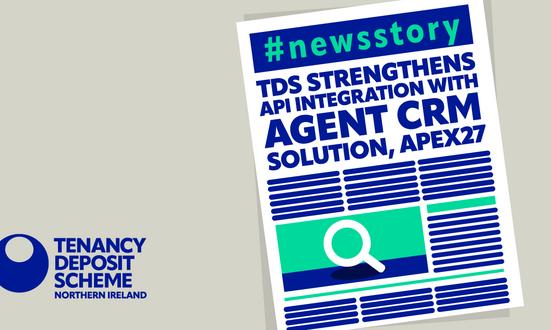
In this week’s #AskTDS, we answer a common question about deposit use clauses; what they are, what they’re used for, and why you need one if you need to claim from the deposit!
A deposit use clause is a section of the tenancy agreement that explains how the deposit can be used. It outlines the circumstances under which the deposit can be kept, such as rent arrears, damages to the property, or other expenses related to the tenant’s breach of the agreement.
The deposit use clause also explains how the deposit will be refunded to the tenant, including any deductions that could be made with mutual agreement, an adjudication or via a court order.
When drafting a tenancy agreement, it is crucial to include a deposit use clause in order to make a claim from the deposit and be aware that many online tenancy agreement templates will not include these as standard.
Even though most deposit deductions are generally agreed upon without intervention from the TDS dispute resolution team, in case of a dispute, an adjudicator will examine the deposit use clause before making any decisions.
If there is no deposit use clause within the tenancy agreement, it is unlikely that an adjudicator will be able to offer the landlord compensation For any potential breaches by the tenant(s).
Typically, an adjudicator will require supporting evidence such as a comprehensive signed inventory, check-in and check-out reports, dated photographic/video evidence, invoices, rent statements; as well as any other documented correspondence between the parties that supports the claims being made.
In addition, the deposit use clause provides landlords with a clear framework for handling deposits. By outlining the circumstances under which the deposit can be kept, landlords can ensure that they are following the law and avoiding any potential legal issues at the end of the tenancy.
You should consider potential breaches by the tenants and ensure our deposit use clause includes these. Examples include cleaning, repairs, missing items, gardening, redecoration, rent and utilities that may be in your name.
To ensure that you are able to make deductions from the deposit at the end of tenancy, it is essential to incorporate information in the tenancy agreement concerning the use of the deposit, and when the deduction will be made. Although the usage of these clauses is discretionary, you may want to incorporate extra clauses, or specifically negotiated clauses tailored to your property’s unique circumstances.
The Deposit may be retained by the landlord in the following circumstances:
Legally, the deposit remains the property of the tenant unless the landlord can prove a valid claim to it.
Therefore, it’s crucial to carefully examine your tenancy agreement to ensure that all possible claims are covered. The landlord or agent has the burden of proof to demonstrate their entitlement to the deposit funds.
The deposit use clause lays the foundation for a claim, but it is imperative landlord’s provide supporting evidence of any potential breaches they would like to make a claim for.


The Tenancy Deposit Scheme is pleased to announce that the innovative CRM solution created for estate agent professionals,


© 2024 The Dispute Service Limited, All Rights Reserved.
The Dispute Service Limited is a company registered in England and Wales with number 4851694.
Registered Office Address: West Wing, First Floor, The Maylands Building, 200 Maylands Avenue, Hemel Hempstead, HP2 7TG.